Luigi Bocacina
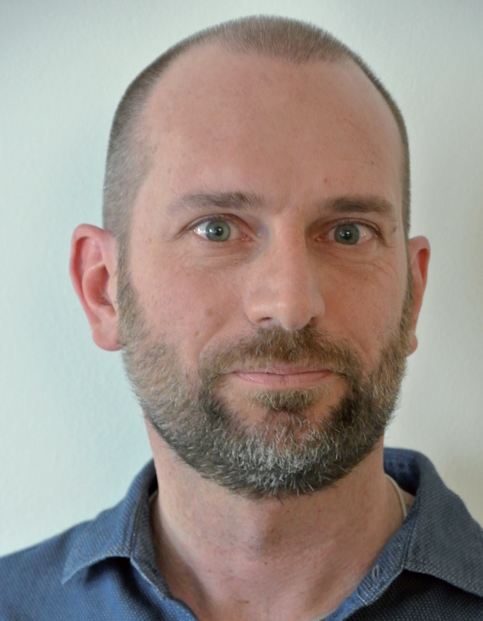 Luigi Bonacina started his academic career at the University of Milan (bachelor in Physics and Master in Optics). He then moved to Switzerland for where he completed a PhD at Swiss Federal Institute of Technology of Lausanne (EPFL) with a research in the field of ultrafast molecular spectroscopy. Successively, he joined the University of Geneva where in 2011 he got a tenured position as Senior Lecturer at the Applied Physics Department. His research activities are focused on the development of novel nonlinear optical approaches for cell-tracking in deep tissue with applications in cancer and regenerative medicine. He has introduced and developed the Harmonic Nanoparticles, a family of non-fluorescent dielectric particles emitting multiple harmonic signals by tunable laser excitation from the visible to the infrared.
Luigi Bonacina started his academic career at the University of Milan (bachelor in Physics and Master in Optics). He then moved to Switzerland for where he completed a PhD at Swiss Federal Institute of Technology of Lausanne (EPFL) with a research in the field of ultrafast molecular spectroscopy. Successively, he joined the University of Geneva where in 2011 he got a tenured position as Senior Lecturer at the Applied Physics Department. His research activities are focused on the development of novel nonlinear optical approaches for cell-tracking in deep tissue with applications in cancer and regenerative medicine. He has introduced and developed the Harmonic Nanoparticles, a family of non-fluorescent dielectric particles emitting multiple harmonic signals by tunable laser excitation from the visible to the infrared.
Francesco Cicone
![]() Francesco Cicone (born on 08/03/1984) graduated from the Second Medical School of “Sapienza” University of Rome in 2008 and specialized in Nuclear Medicine in 2014. Over the years he undertook several international clinical research experiences, namely in Belgium, Switzerland, United Kingdom and Germany. He is now enrolled as a preclinical research fellow at the University Hospital of Lausanne (CH) in the frame of the Marie Curie Innovative Training Network MEDICIS-PROMED coordinated by CERN. He is member of the Italian Association of Nuclear Medicine (AIMN), of the International Research Group on Immuno-Scintigraphy and Therapy (IRIST), and of the European Association of Nuclear Medicine (EANM). Previous member of the Young EANM Committee, he is now active member of the EANM International Dosimetry Task Force. He is reviewer for the leading journals in the field of nuclear medicine and molecular imaging. His main research interests are Radionuclide Therapy and Dosimetry and Amino Acid PET imaging of brain tumors. A list of publications can be found here: https://www.ncbi.nlm.nih.gov/pubmed/?term=cicone+f
Francesco Cicone (born on 08/03/1984) graduated from the Second Medical School of “Sapienza” University of Rome in 2008 and specialized in Nuclear Medicine in 2014. Over the years he undertook several international clinical research experiences, namely in Belgium, Switzerland, United Kingdom and Germany. He is now enrolled as a preclinical research fellow at the University Hospital of Lausanne (CH) in the frame of the Marie Curie Innovative Training Network MEDICIS-PROMED coordinated by CERN. He is member of the Italian Association of Nuclear Medicine (AIMN), of the International Research Group on Immuno-Scintigraphy and Therapy (IRIST), and of the European Association of Nuclear Medicine (EANM). Previous member of the Young EANM Committee, he is now active member of the EANM International Dosimetry Task Force. He is reviewer for the leading journals in the field of nuclear medicine and molecular imaging. His main research interests are Radionuclide Therapy and Dosimetry and Amino Acid PET imaging of brain tumors. A list of publications can be found here: https://www.ncbi.nlm.nih.gov/pubmed/?term=cicone+f
Louise Couton
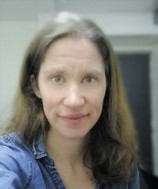 Dr. Louise Couton is a postdoctoral researcher who was awarded a MSCA- Intra European fellowship in 2017. Her current project aims at identifying molecular mechanisms involved in asymmetric cell division. Prior to this, she worked for 6 years in Cambridge, UK, studying the regulation of neuronal connectivity. She holds a PhD in neurosciences from Paris VI University.
Dr. Louise Couton is a postdoctoral researcher who was awarded a MSCA- Intra European fellowship in 2017. Her current project aims at identifying molecular mechanisms involved in asymmetric cell division. Prior to this, she worked for 6 years in Cambridge, UK, studying the regulation of neuronal connectivity. She holds a PhD in neurosciences from Paris VI University.
Thibaut Danoël
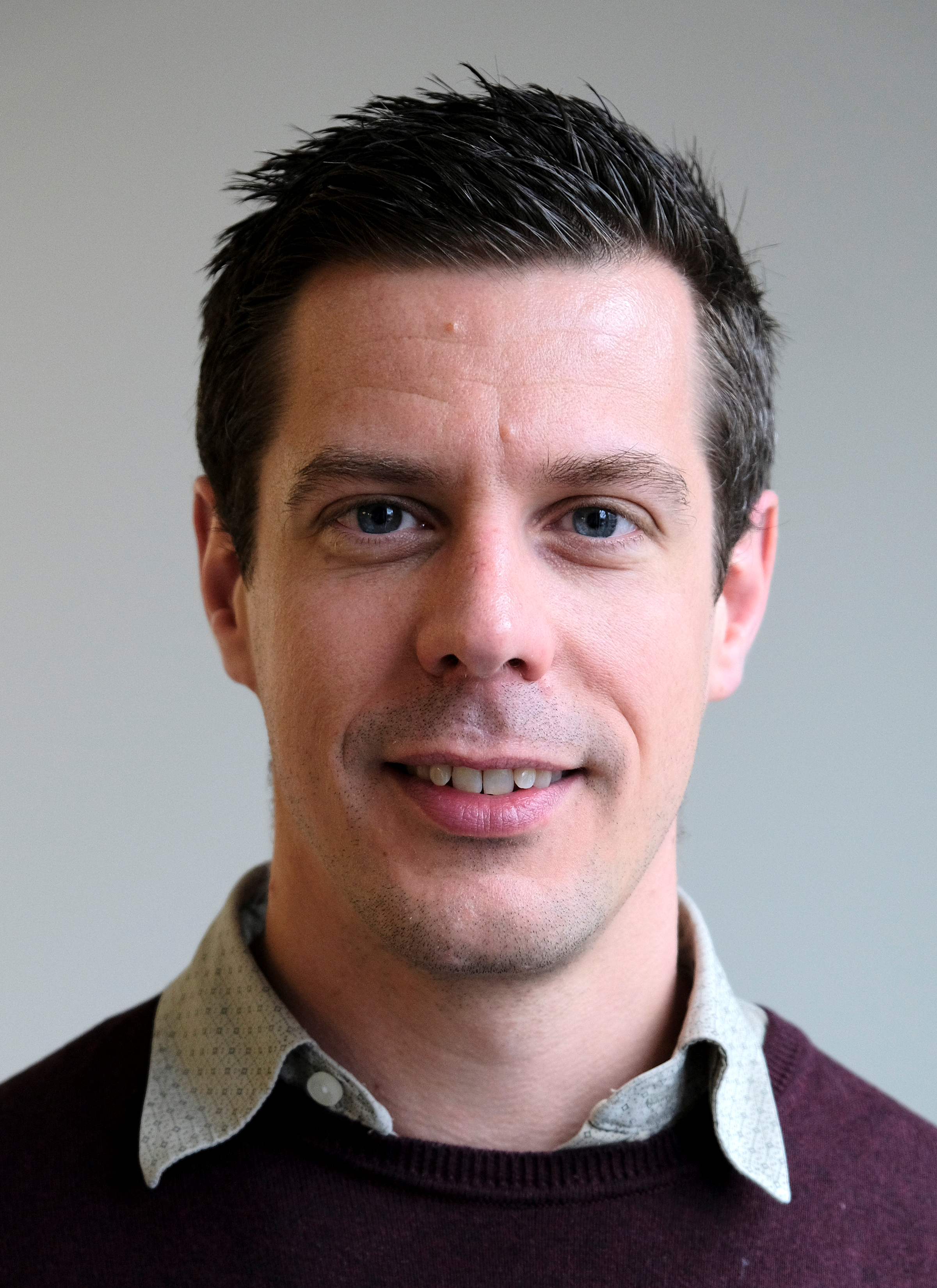 Thibaut Denoël graduated in Chemistry from the University of Liège, Belgium in 2004. In 2014, he obtained his PhD in Sciences at the Cyclotron Research Centre (Liège, Belgium) for his work in organic synthesis under the supervision of Prof. André Luxen. He developed new unnatural amino acid compounds, lanthionine derivatives and peptides, cyanine dyes, and fluorinated radiopharmaceuticals. In 2015 he joined the Department of Nuclear Medicine and Molecular Imaging of the University Hospital of Lausanne (Switzerland) as a Research Assistant under the supervision of Prof. John O. Prior. His current research concerns the development of innovative radioactive probes for molecular imaging and therapy.
Thibaut Denoël graduated in Chemistry from the University of Liège, Belgium in 2004. In 2014, he obtained his PhD in Sciences at the Cyclotron Research Centre (Liège, Belgium) for his work in organic synthesis under the supervision of Prof. André Luxen. He developed new unnatural amino acid compounds, lanthionine derivatives and peptides, cyanine dyes, and fluorinated radiopharmaceuticals. In 2015 he joined the Department of Nuclear Medicine and Molecular Imaging of the University Hospital of Lausanne (Switzerland) as a Research Assistant under the supervision of Prof. John O. Prior. His current research concerns the development of innovative radioactive probes for molecular imaging and therapy.
Stéphane Germain
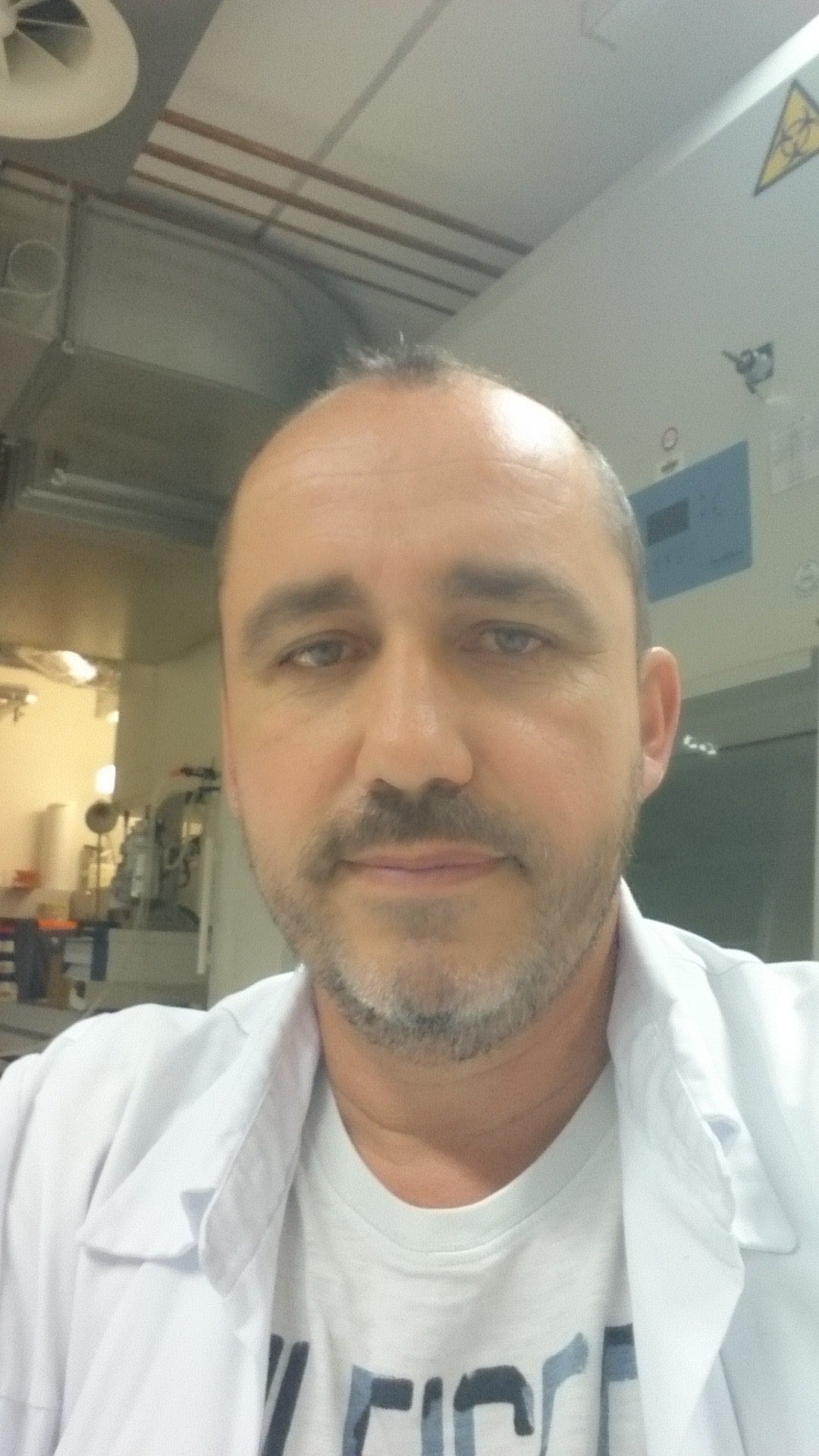 Stéphane Germain is a senior in vivo laboratory technician and works in the microPET/SPECT/CT laboratory of the Centre for BioMedical Imaging (CIBM) located within the Institute of Translational Molecular Imaging (ITMI), University and University Hospitals of Geneva. He graduated from the University of Lyon (France) in 1991 and obtained a Technology University Diploma in Biology with a speciality in animal experimentation. He has more than 25 years of experience with in vivo models such as mice, rats, rabbits and pigs and worked in many preclinical research fields including oncology, cardiology, neurology. Since 2007, he specialized in small animal imaging technics especially by micro PET/SPECT/CT and is responsible of the daily management of scans performed on the CIBM facility. On side of his facility-related activities, his research is focused on the validation of new imaging technics and radiotracers to monitor preclinical models especially in oncology.
Stéphane Germain is a senior in vivo laboratory technician and works in the microPET/SPECT/CT laboratory of the Centre for BioMedical Imaging (CIBM) located within the Institute of Translational Molecular Imaging (ITMI), University and University Hospitals of Geneva. He graduated from the University of Lyon (France) in 1991 and obtained a Technology University Diploma in Biology with a speciality in animal experimentation. He has more than 25 years of experience with in vivo models such as mice, rats, rabbits and pigs and worked in many preclinical research fields including oncology, cardiology, neurology. Since 2007, he specialized in small animal imaging technics especially by micro PET/SPECT/CT and is responsible of the daily management of scans performed on the CIBM facility. On side of his facility-related activities, his research is focused on the validation of new imaging technics and radiotracers to monitor preclinical models especially in oncology.
Silvano Gnesin
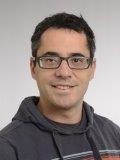 Silvano Gnesin (born on 28/08/1977) is a medical physicist at the Lausanne University Hosptital (CHUV), from December 2011. He graduates from the Univesità degli Studi di Padova on 2004. Between 2005 and 2011, he performed a PhD in plasma physics at the Centre de Recherches en Physique des Plasmas (CRPP) at the EPFL. He obtained the medical physicist SSRMP certification in 2015. He is currently involved in image quality assessment and clinical protocol optimization at the nuclear medicine department of CHUV. His main research interest is the dosimetry in vectorized internal radiation therapy.
Silvano Gnesin (born on 28/08/1977) is a medical physicist at the Lausanne University Hosptital (CHUV), from December 2011. He graduates from the Univesità degli Studi di Padova on 2004. Between 2005 and 2011, he performed a PhD in plasma physics at the Centre de Recherches en Physique des Plasmas (CRPP) at the EPFL. He obtained the medical physicist SSRMP certification in 2015. He is currently involved in image quality assessment and clinical protocol optimization at the nuclear medicine department of CHUV. His main research interest is the dosimetry in vectorized internal radiation therapy.
Prof. Renaud Jolivet
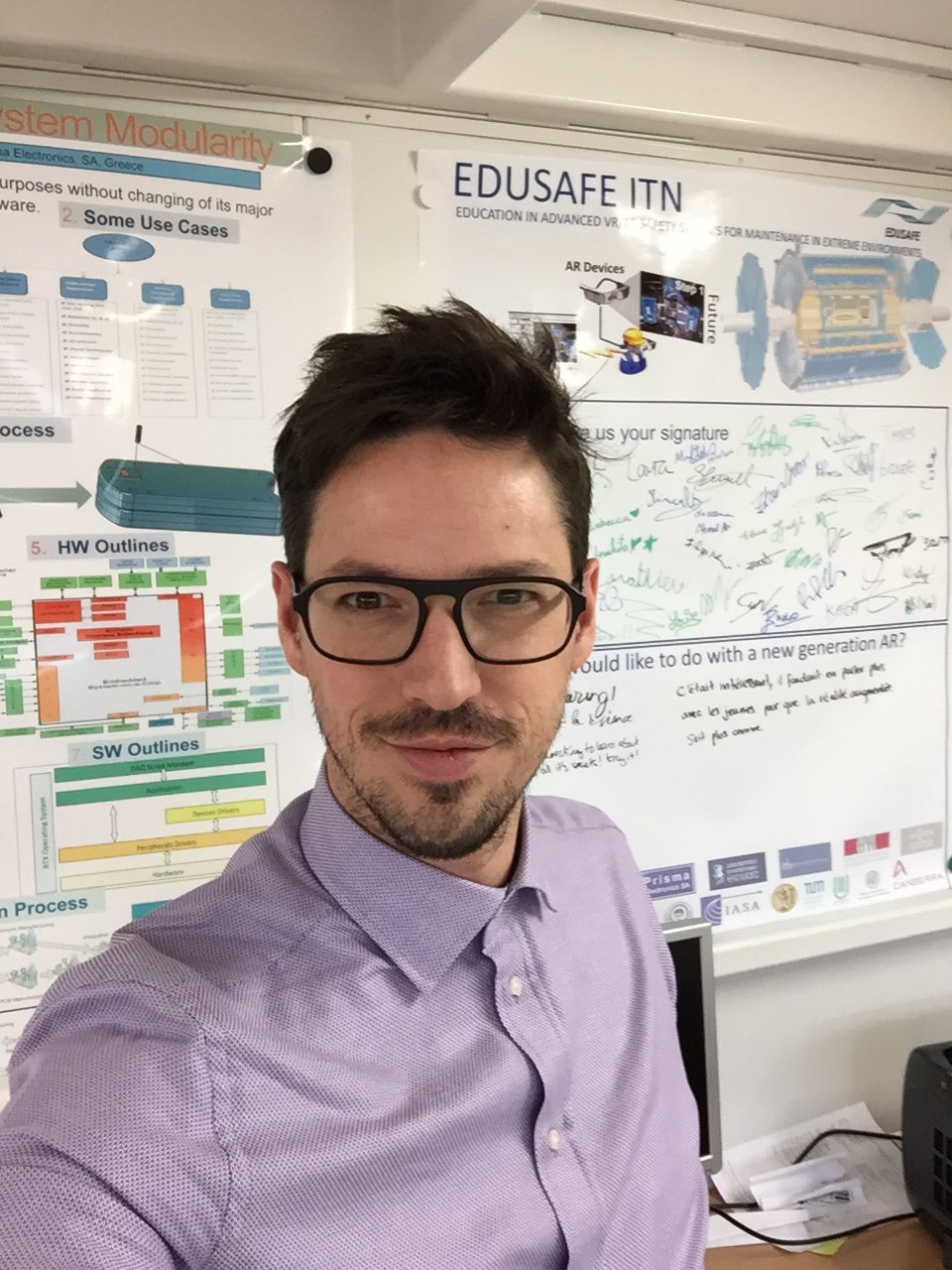 Prof. Renaud Jolivet is a physicist and computational biologist specializing on the brain. He has been working in biology and medicine for sixteen years. Since January 2016, he holds an appointment as Joint Professor in Medical Physics at the University of Geneva and CERN. Prior to that, he was a PhD student at EPFL, Lausanne, Switzerland. He was then a fellow at the Universities of Lausanne and Zürich, a guest researcher at the University of Kyoto and at the RIKEN Brain Science Institute, and then a fellow at University College London. Throughout his postdoctoral studies, he was supported by prestigious fellowships including a Marie Skłodowska-Curie fellowship from the European Commission. He currently leads a team of five scientists (3 doctoral students and 2 postdocs) funded by several grants totaling ~1M CHF. Prof. Jolivet has an h-index of 17 and his work has been cited more than 1700 times (Google Scholar). He is interested by how limited energy availability shapes brain frunction, and by how different cell types in the brain interact with each other and with neural networks.
Prof. Renaud Jolivet is a physicist and computational biologist specializing on the brain. He has been working in biology and medicine for sixteen years. Since January 2016, he holds an appointment as Joint Professor in Medical Physics at the University of Geneva and CERN. Prior to that, he was a PhD student at EPFL, Lausanne, Switzerland. He was then a fellow at the Universities of Lausanne and Zürich, a guest researcher at the University of Kyoto and at the RIKEN Brain Science Institute, and then a fellow at University College London. Throughout his postdoctoral studies, he was supported by prestigious fellowships including a Marie Skłodowska-Curie fellowship from the European Commission. He currently leads a team of five scientists (3 doctoral students and 2 postdocs) funded by several grants totaling ~1M CHF. Prof. Jolivet has an h-index of 17 and his work has been cited more than 1700 times (Google Scholar). He is interested by how limited energy availability shapes brain frunction, and by how different cell types in the brain interact with each other and with neural networks.
Paul Lecoque
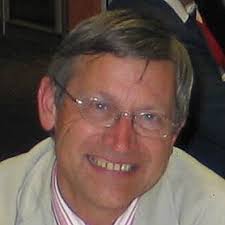 Paul Lecoq has received his diploma as Engineer in Physics Instrumentation at the Ecole Polytechnique de Grenoble in 1972, under the leadership of Nobel Laureate Louis Néel. After two years of work at the Nuclear Physics laboratory of the University of Montreal, Canada, he got his PhD in Nuclear Physics in 1974. Since then he has been working at CERN in 5 major international experiments on particle physics, one of them led by Nobel Laureate Samuel Ting . His action on detector instrumentation, and particularly on heavy inorganic scintillator materials has received a strong support from Carlo Rubia and Georges Charpak. He has been the technical coordinator of the electromagnetic calorimeter of the CMS experiment at CERN, which played an important role in the discovery of the Higgs boson. Paul Lecoq is the founder of the CERN-based international Crystal Clear collaboration regrouping 28 institutes and companies worldwide contributing to the development of scintillator science. He has also created the SCINT conference series in 1991, which gathers every second year the international community working on fundamental aspects, production technologies and applications of scintillators. Member of a number of advisory committees and of international Societies he is since 2002 the promoter of the CERIMED initiative (European Center for Research Research in Medical Imaging) for networking physics and medicine in the field of medical imaging.He has been elected in 2008 member of the European Academy of Sciences and in 2017 head of the Physics division of the Academy.He has been awarded an ERC advanced grant in 2013 by the European Research Council. He has been elected IEEE fellow in 2015.
Paul Lecoq has received his diploma as Engineer in Physics Instrumentation at the Ecole Polytechnique de Grenoble in 1972, under the leadership of Nobel Laureate Louis Néel. After two years of work at the Nuclear Physics laboratory of the University of Montreal, Canada, he got his PhD in Nuclear Physics in 1974. Since then he has been working at CERN in 5 major international experiments on particle physics, one of them led by Nobel Laureate Samuel Ting . His action on detector instrumentation, and particularly on heavy inorganic scintillator materials has received a strong support from Carlo Rubia and Georges Charpak. He has been the technical coordinator of the electromagnetic calorimeter of the CMS experiment at CERN, which played an important role in the discovery of the Higgs boson. Paul Lecoq is the founder of the CERN-based international Crystal Clear collaboration regrouping 28 institutes and companies worldwide contributing to the development of scintillator science. He has also created the SCINT conference series in 1991, which gathers every second year the international community working on fundamental aspects, production technologies and applications of scintillators. Member of a number of advisory committees and of international Societies he is since 2002 the promoter of the CERIMED initiative (European Center for Research Research in Medical Imaging) for networking physics and medicine in the field of medical imaging.He has been elected in 2008 member of the European Academy of Sciences and in 2017 head of the Physics division of the Academy.He has been awarded an ERC advanced grant in 2013 by the European Research Council. He has been elected IEEE fellow in 2015.
Prof. Lana Kandalaft
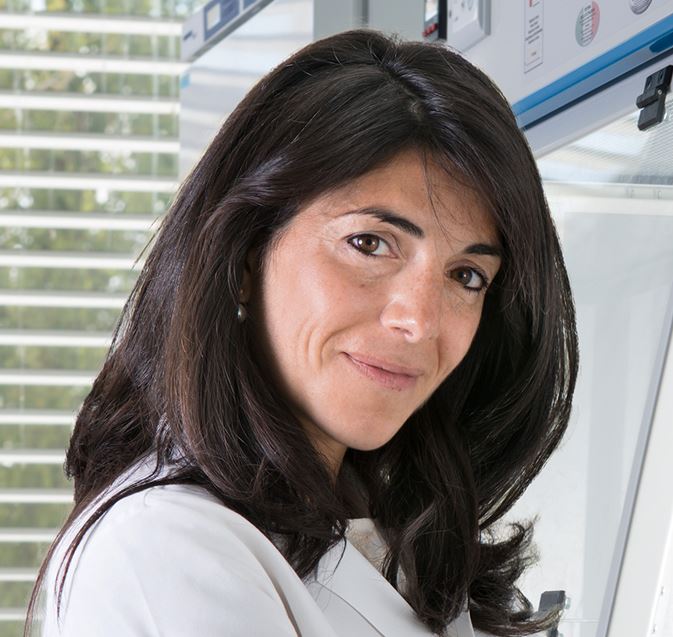 Prof. Lana Kandalaft is one of the key members of the Swiss Cancer Center in Lausanne Switzerland. She is currently the Cheffe de Service (Director) of the Center of Experimental Therapeutics, an integrated structure of clinical services, manufacturing facilities and laboratory platforms in the Department of Oncology, at the CHUV and the Swiss Cancer Center Lausanne aiming to take new cellular therapies from the lab to the clinic. She also is an Assistant Professor at the Ludwig Institute for Cancer Research and Adjunct Assistant Professor at the University of Pennsylvania, School of Medicine. Prof. Kandalaft holds a Doctorate in Pharmacy and a PhD from the Welsh School of Pharmacy at Cardiff University, UK, and a Master's Degree in Translational Research from the University of Pennsylvania, USA. She completed her postdoctoral fellowship training at The National Cancer Institute, Bethesda, Maryland, focusing on preclinical animal models and cancer therapeutics. She then continued working at The NCI as a senior research fellow before joining the School of Medicine at the University of Pennsylvania, where she held an appointment as an Assistant Professor of Obstetrics and Gynecology at the Ovarian Cancer Research Center working on personalized vaccine development in ovarian cancer patients. She also was the Director of Clinical Development and Operations of the Ovarian Cancer Research Center at University of Pennsylvania where she played a crucial role in the development and implementation of cell-based and gene therapy clinical protocols. Prof. Kandalaft has strong expertise in clinical development, regulatory policies and translational research. She is interested in translational cell based cancer immunotherapies with a special focus on immunotherapy of ovarian cancer. She currently has a dual appointment of heading the Center of Experimental Therapeutics and a basic laboratory, which focuses on developing novel strategies for personalized vaccines taking them from bench to bedside.
Prof. Lana Kandalaft is one of the key members of the Swiss Cancer Center in Lausanne Switzerland. She is currently the Cheffe de Service (Director) of the Center of Experimental Therapeutics, an integrated structure of clinical services, manufacturing facilities and laboratory platforms in the Department of Oncology, at the CHUV and the Swiss Cancer Center Lausanne aiming to take new cellular therapies from the lab to the clinic. She also is an Assistant Professor at the Ludwig Institute for Cancer Research and Adjunct Assistant Professor at the University of Pennsylvania, School of Medicine. Prof. Kandalaft holds a Doctorate in Pharmacy and a PhD from the Welsh School of Pharmacy at Cardiff University, UK, and a Master's Degree in Translational Research from the University of Pennsylvania, USA. She completed her postdoctoral fellowship training at The National Cancer Institute, Bethesda, Maryland, focusing on preclinical animal models and cancer therapeutics. She then continued working at The NCI as a senior research fellow before joining the School of Medicine at the University of Pennsylvania, where she held an appointment as an Assistant Professor of Obstetrics and Gynecology at the Ovarian Cancer Research Center working on personalized vaccine development in ovarian cancer patients. She also was the Director of Clinical Development and Operations of the Ovarian Cancer Research Center at University of Pennsylvania where she played a crucial role in the development and implementation of cell-based and gene therapy clinical protocols. Prof. Kandalaft has strong expertise in clinical development, regulatory policies and translational research. She is interested in translational cell based cancer immunotherapies with a special focus on immunotherapy of ovarian cancer. She currently has a dual appointment of heading the Center of Experimental Therapeutics and a basic laboratory, which focuses on developing novel strategies for personalized vaccines taking them from bench to bedside.
Dr. Sibylla Martinelli
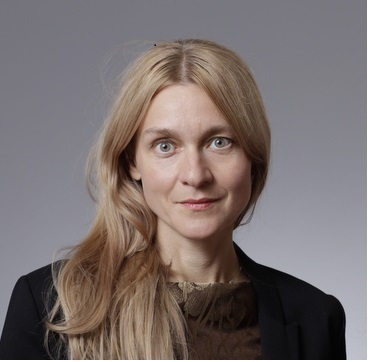 Dr. Sibylla Martinelli works as Scientific Advisor at Euresearch. She has been the National Contact Point (NCP) for the Marie Sklodowska-Curie Actions of the European Commission since 2012 and coordinated a European Project from 2016-2018. Sibylla holds a PhD in experimental biomedicine from University of Berne and has several years of experience in postdoctoral research.
Dr. Sibylla Martinelli works as Scientific Advisor at Euresearch. She has been the National Contact Point (NCP) for the Marie Sklodowska-Curie Actions of the European Commission since 2012 and coordinated a European Project from 2016-2018. Sibylla holds a PhD in experimental biomedicine from University of Berne and has several years of experience in postdoctoral research.
Michael Murek
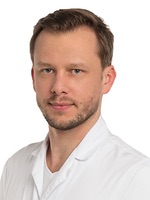
Michael Murek is a neurosurgeon specialised in Neuro-oncology. He received his training at the YALE University, the University Hospital in Geneva as well as at Inselspital, Berne University Hospital in Switzerland where he currently enjoys operating, teaching and conducting research. After completing the presidency of the Swiss Young Neurosurgeons Society in 2017 he is currently concentrating on several projects to improve brain tumour surgery. He is an avid reader eager to apply his insatiable curiosity to nagging problems.
Florence Pesce
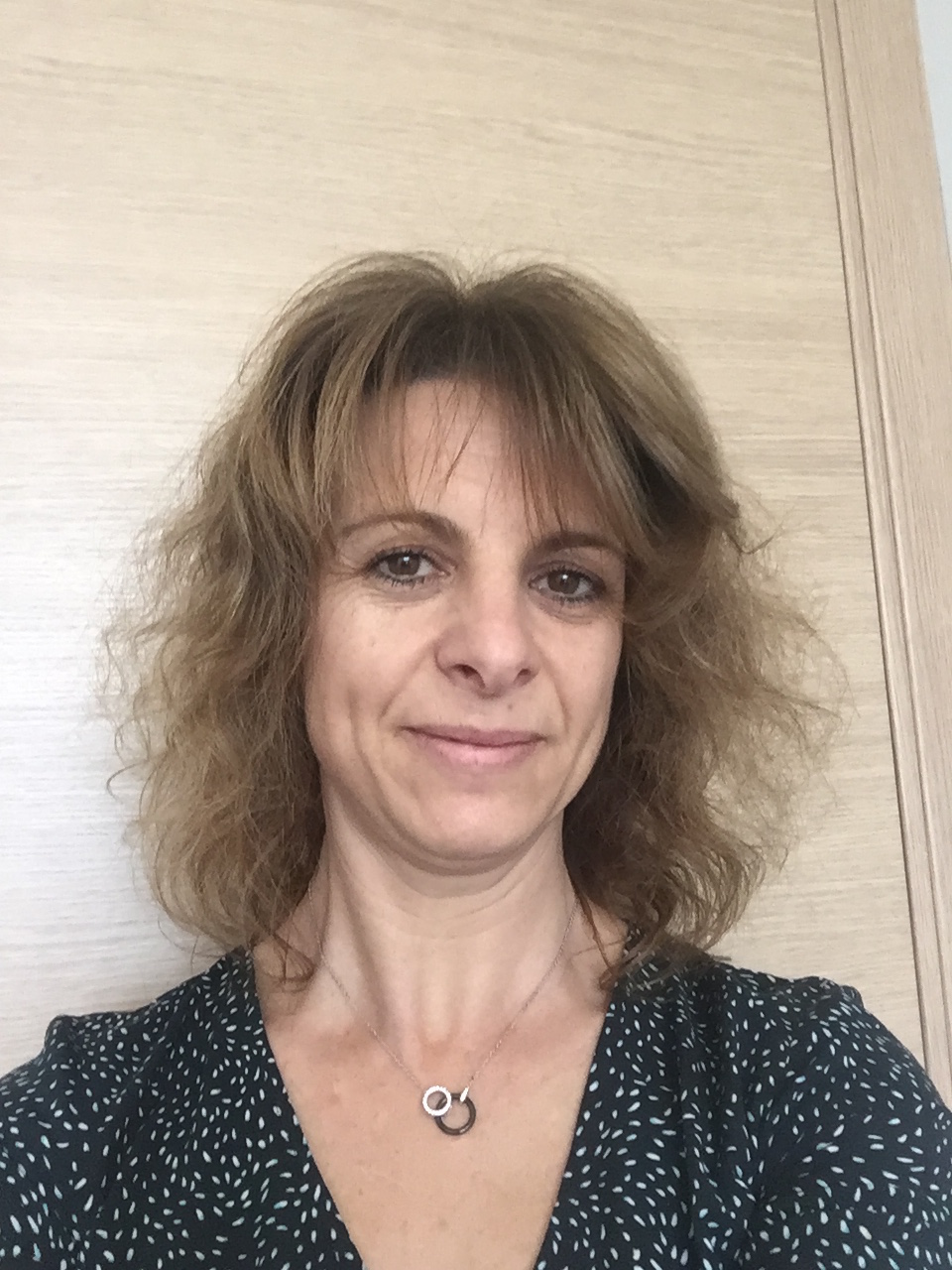 Florence Pesce joined CERN in May 2011. She has twelve years of experience in the European Commission environment.From Project Assistant to Project Coordinator in ERCIM (France 2006-2011) where she was in charge of the administration and finance of projects under the FP6 and FP7 Framework programmes. In 2011, she moved to CERN as financial officer on European projects. Currently she is now the Head of the External Grants section, mainly dealing with the finances of all European Projects (FP7 and H2020 work programme). The work extends from the budget proposal to the submission of the Financial Statement to the Commission. She provides advice and support to the scientific project managers, as well as to the external participants as a specialist in EU funded projects
Florence Pesce joined CERN in May 2011. She has twelve years of experience in the European Commission environment.From Project Assistant to Project Coordinator in ERCIM (France 2006-2011) where she was in charge of the administration and finance of projects under the FP6 and FP7 Framework programmes. In 2011, she moved to CERN as financial officer on European projects. Currently she is now the Head of the External Grants section, mainly dealing with the finances of all European Projects (FP7 and H2020 work programme). The work extends from the budget proposal to the submission of the Financial Statement to the Commission. She provides advice and support to the scientific project managers, as well as to the external participants as a specialist in EU funded projects
Prof. John Prior
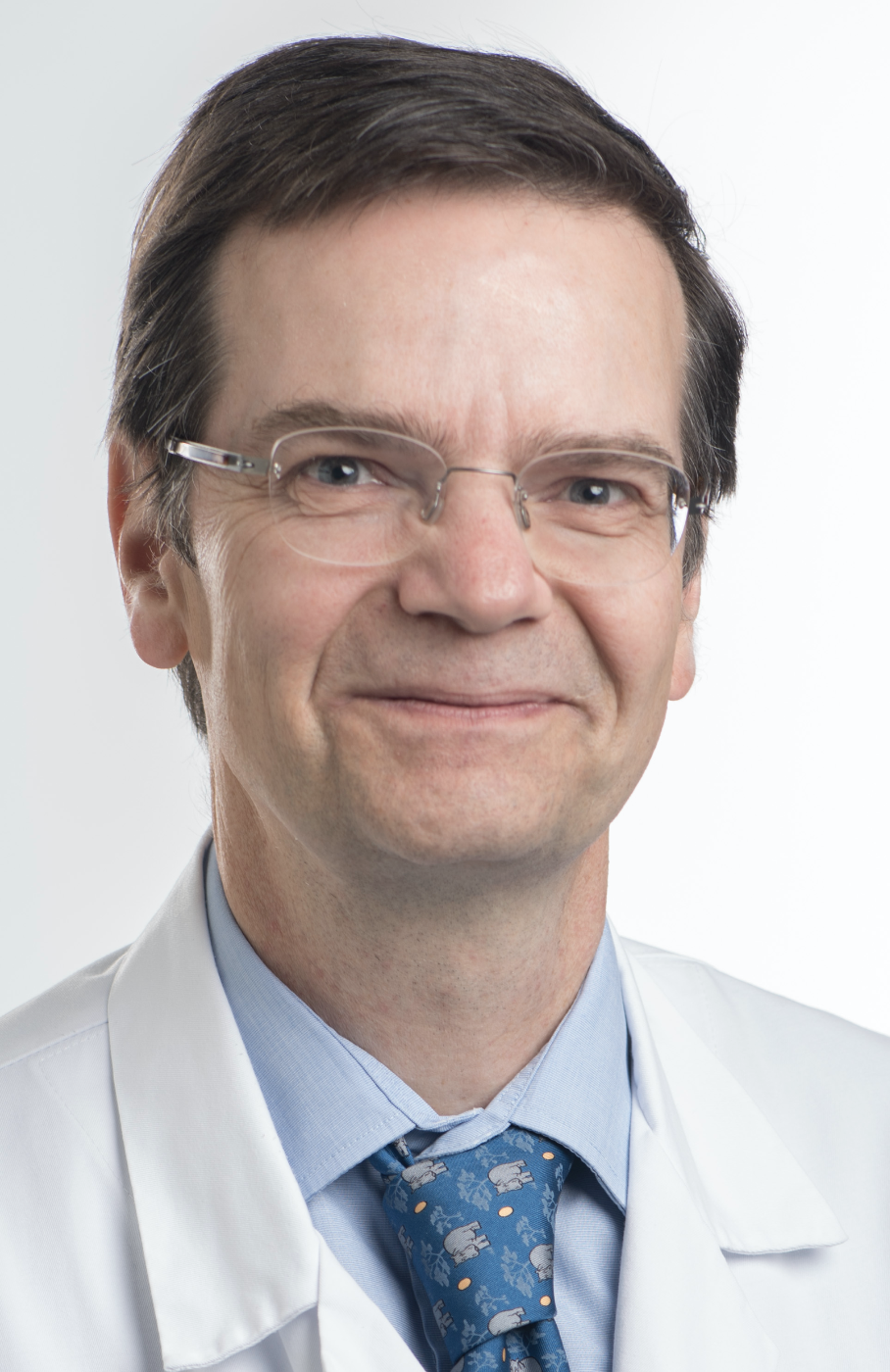
John O. Prior, PhD MD, FEBNM, is Professor and Head of Nuclear Medicine and Molecular Imaging at Lausanne University Hospital, Switzerland (www.chuv.ch/nuc). After graduating with a MSEE degree from the Swiss Federal Institute of Technology at Zurich (ETH Zurich), he received a PhD in Biomedical Engineering from The University of Texas Southwestern Medical Center at Dallas (UTSW) and a MD from the University of Lausanne. He underwent a subsequent specialization in nuclear medicine in Lausanne (Prof. A. Bischof Delaloye, MD) and a visiting associate professor fellowship at the University of California at Los Angeles (UCLA) in cardiovascular PET with Prof. H. R. Schelbert, MD PhD. Prof. Prior is Vice-President of the Swiss Society of Nuclear Medicine, Member of the European Association of Nuclear Medicine (EANM), the Society of Nuclear Medicine and Molecular Imaging (SNMMI) and past member of the SNMMI Board of Director of the PET Center of Excellence, as well as IEEE Senior Member. His research interests are in molecular imaging and therapy using radiopharmaceuticals.
Fiona Reid
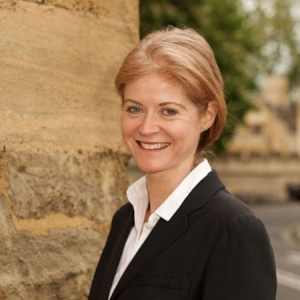 Before joining UCL in 2015 Fiona had a career in the private sector as an entrepreneur and at universities such as Imperial College and Oxford University, where she was Founder Director of the Oxford Centre for Entrepreneurship and Innovation at the Said Business School for nine years. She has served as Director of UKCDS, which manages £440m of public research funding to support UK government’s international development interests. She is a Fellow of the RSA and lectures internationally on innovation, research impact and creating social and economic benefit from entrepreneurship. She has worked with large organisations such as Philips, the Financial Times, Goldman Sachs, with governments, and high-growth small businesses, and has been involved in the creation of many new spinouts and social ventures arising from Higher Education. Her expertise focuses on complex innovation spaces, the interface between science and business, and entrepreneurial thinking within organisations. Fiona was awarded UCL School of Management’s “Excellence in Teaching” award for 2017.
Before joining UCL in 2015 Fiona had a career in the private sector as an entrepreneur and at universities such as Imperial College and Oxford University, where she was Founder Director of the Oxford Centre for Entrepreneurship and Innovation at the Said Business School for nine years. She has served as Director of UKCDS, which manages £440m of public research funding to support UK government’s international development interests. She is a Fellow of the RSA and lectures internationally on innovation, research impact and creating social and economic benefit from entrepreneurship. She has worked with large organisations such as Philips, the Financial Times, Goldman Sachs, with governments, and high-growth small businesses, and has been involved in the creation of many new spinouts and social ventures arising from Higher Education. Her expertise focuses on complex innovation spaces, the interface between science and business, and entrepreneurial thinking within organisations. Fiona was awarded UCL School of Management’s “Excellence in Teaching” award for 2017.
Nick Ryckx
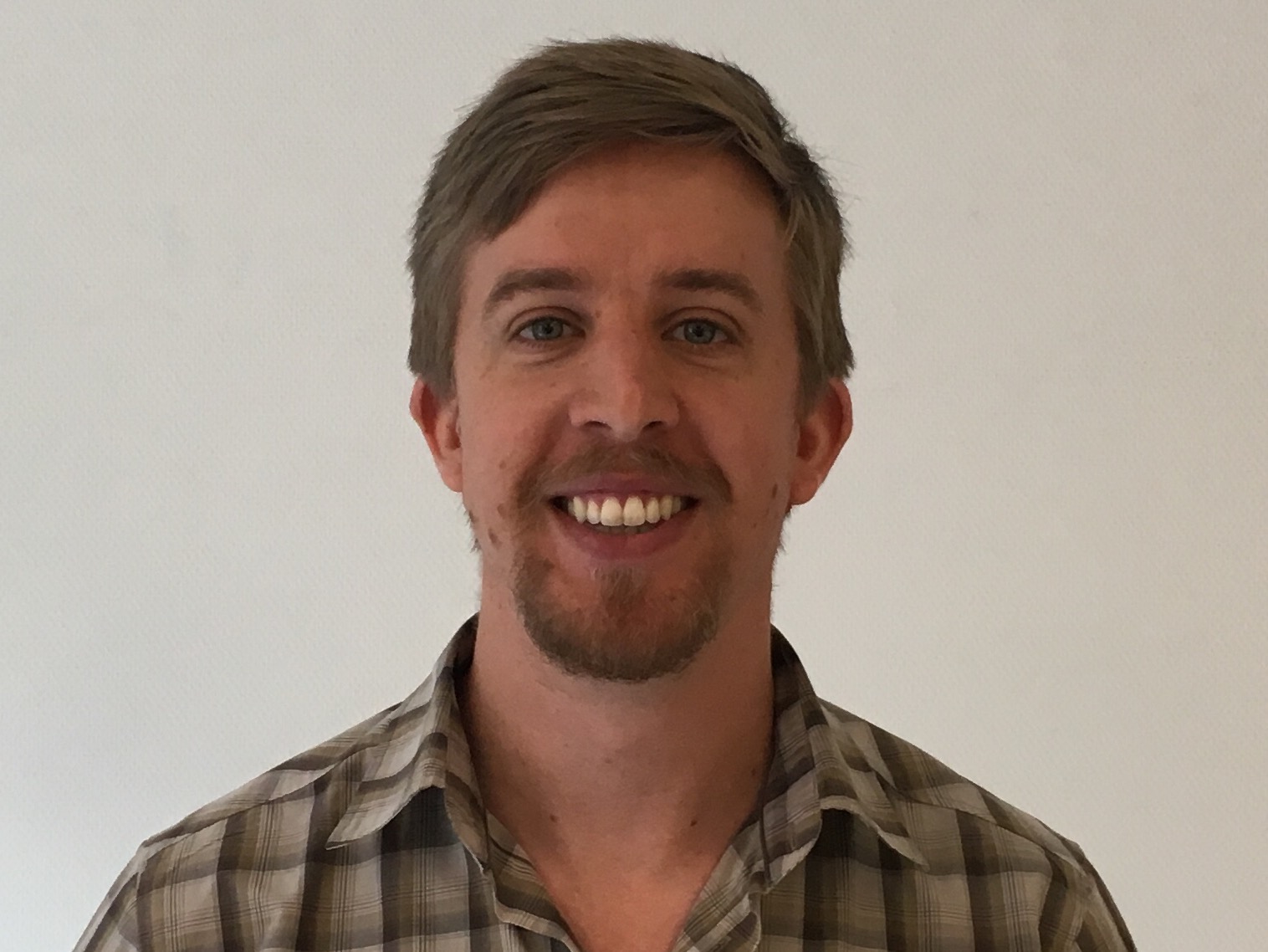 Nick RYCKX is a medical physicist at CHUV. He was born in Belgium in 1987 but has grown in Switzerland. He graduated as a physicist (MSc in physics) at EPFL in 2012, and started working at the Institute of Radiation Physics since May 2012, where he passed his SSRMP certification in 2015 and his PhD in 2017, with the title “Patient and staff dose in fluoroscopically-guided interventions: Exploring new optimisation strategies”. He is currently responsible for the implementation of article 36 of the Swiss Radiation protection ordinance (StSV/ORaP) for CHUV and several external clients.
Nick RYCKX is a medical physicist at CHUV. He was born in Belgium in 1987 but has grown in Switzerland. He graduated as a physicist (MSc in physics) at EPFL in 2012, and started working at the Institute of Radiation Physics since May 2012, where he passed his SSRMP certification in 2015 and his PhD in 2017, with the title “Patient and staff dose in fluoroscopically-guided interventions: Exploring new optimisation strategies”. He is currently responsible for the implementation of article 36 of the Swiss Radiation protection ordinance (StSV/ORaP) for CHUV and several external clients.
Prof. Niklaus Schaefer
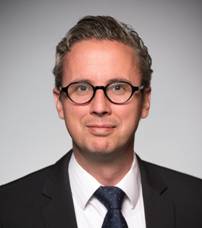 Niklaus Schaefer is board certified for Medical Oncology, Internal Medicine and Nuclear Medicine. After initial years of Internal Medicine, he was trained in Medical Oncology and Nuclear Medicine at the University Hospital of Zurich (USZ) and at the Johns Hopkins Medical Institution. During his time at USZ he initiated several NM treatments as liver radioembolisation (SIRT) for refractory liver tumors, radium – 223 chloride for symptomatic bone metastases of CRPC or Lutetium – 177 DOTATATE for Neuroendocrine Tumors and Meningeoma in Switzerland. In 2012 he received the Venia Legendi (PD) in Medical Oncology and Nuclear Medicine at the University of Zurich. In 2013 he founded the ENETS center of Excellence at the USZ. In 2014 he was elected as Assistant Professor for Theragnostics at the University of Zurich. In 2015 Niklaus Schaefer was elected Associate Professor at CHUV/UNIL Lausanne.
Niklaus Schaefer is board certified for Medical Oncology, Internal Medicine and Nuclear Medicine. After initial years of Internal Medicine, he was trained in Medical Oncology and Nuclear Medicine at the University Hospital of Zurich (USZ) and at the Johns Hopkins Medical Institution. During his time at USZ he initiated several NM treatments as liver radioembolisation (SIRT) for refractory liver tumors, radium – 223 chloride for symptomatic bone metastases of CRPC or Lutetium – 177 DOTATATE for Neuroendocrine Tumors and Meningeoma in Switzerland. In 2012 he received the Venia Legendi (PD) in Medical Oncology and Nuclear Medicine at the University of Zurich. In 2013 he founded the ENETS center of Excellence at the USZ. In 2014 he was elected as Assistant Professor for Theragnostics at the University of Zurich. In 2015 Niklaus Schaefer was elected Associate Professor at CHUV/UNIL Lausanne.
Frédéric Schütz
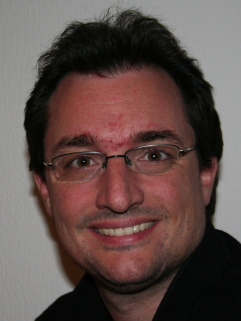
David Viertl
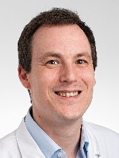 David Viertl, PhD is in charge of the small animal imaging laboratory of the Nuclear Medicine department at the University Hospital of Lausanne. He obtained a master’s degree in neuroscience and endocrinology in 2005 and completed his PhD in life science at the University of Lausanne in 2010. His current researches include the development of new radiotracers and their transfer into clinical applications. His translational researches lead to several clinical trials such as increased 18F-FLT uptake in breast cancer by blocking tumor cells in S phase, the use SMAC-mimetic as a radiosensitizer in head and neck squamous cell carcinoma and lately radioiodination of an antibody targeting HIV envelop to study latent reservoir in HIV chronic patient.
David Viertl, PhD is in charge of the small animal imaging laboratory of the Nuclear Medicine department at the University Hospital of Lausanne. He obtained a master’s degree in neuroscience and endocrinology in 2005 and completed his PhD in life science at the University of Lausanne in 2010. His current researches include the development of new radiotracers and their transfer into clinical applications. His translational researches lead to several clinical trials such as increased 18F-FLT uptake in breast cancer by blocking tumor cells in S phase, the use SMAC-mimetic as a radiosensitizer in head and neck squamous cell carcinoma and lately radioiodination of an antibody targeting HIV envelop to study latent reservoir in HIV chronic patient.
Prof. Martin Walter
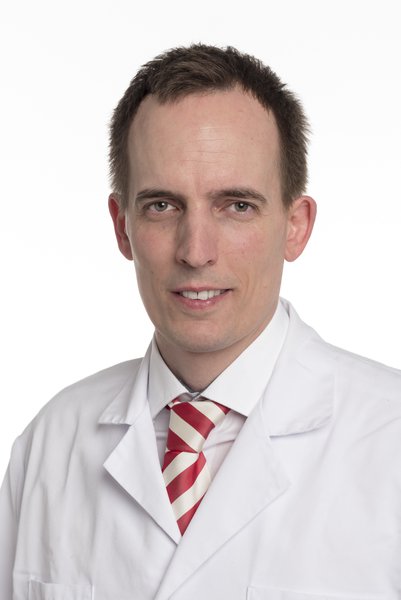 Dr. Martin A. Walter received his medical degree from Muenster University (Germany), having also spent time in the medical schools of Zurich (Switzerland) and London (UK). He completed his nuclear medicine residency in Basel (Switzerland) under the mentorship of Drs. Jan Mueller-Brand and Helmut Maecke, two of the pioneers of radiopeptide therapy. Subsequently, he worked as postdoctoral fellow and assistant professor at the UCLA Department of Molecular and Medical Pharmacology headed by Dr. Michael Phelps, the inventor of positron emission tomography. On returning to Switzerland, he established a radiotracer development program at the University Hospital Bern, before transferring to the University Hospital Geneva. As the Head of the Division of Nuclear Medicine at the University Hospital Geneva, Dr. Walter’s work is dedicated to developing precision medicine platforms, and translating them into clinical practice. His preclinical research is focused on the development of targeted radiotracers, while his clinical research is focused on clinical trials and meta-analyses that evaluated the benefits and harms of novel radioligands. Dr. Walter has published more than 100 original scientific contributions, including publications in journals such as the New England Journal of Medicine, the Journal of the American Medical Association (JAMA) and the British Medical Journal (BMJ). His work on tumor imaging and treatment has been published in various oncologic journals, including the Journal of Clinical Oncology, Clinical Cancer Research, Cancer Research and Cancer, and have won numerous awards in the field of radioisotope-based imaging and treatment.
Dr. Martin A. Walter received his medical degree from Muenster University (Germany), having also spent time in the medical schools of Zurich (Switzerland) and London (UK). He completed his nuclear medicine residency in Basel (Switzerland) under the mentorship of Drs. Jan Mueller-Brand and Helmut Maecke, two of the pioneers of radiopeptide therapy. Subsequently, he worked as postdoctoral fellow and assistant professor at the UCLA Department of Molecular and Medical Pharmacology headed by Dr. Michael Phelps, the inventor of positron emission tomography. On returning to Switzerland, he established a radiotracer development program at the University Hospital Bern, before transferring to the University Hospital Geneva. As the Head of the Division of Nuclear Medicine at the University Hospital Geneva, Dr. Walter’s work is dedicated to developing precision medicine platforms, and translating them into clinical practice. His preclinical research is focused on the development of targeted radiotracers, while his clinical research is focused on clinical trials and meta-analyses that evaluated the benefits and harms of novel radioligands. Dr. Walter has published more than 100 original scientific contributions, including publications in journals such as the New England Journal of Medicine, the Journal of the American Medical Association (JAMA) and the British Medical Journal (BMJ). His work on tumor imaging and treatment has been published in various oncologic journals, including the Journal of Clinical Oncology, Clinical Cancer Research, Cancer Research and Cancer, and have won numerous awards in the field of radioisotope-based imaging and treatment.